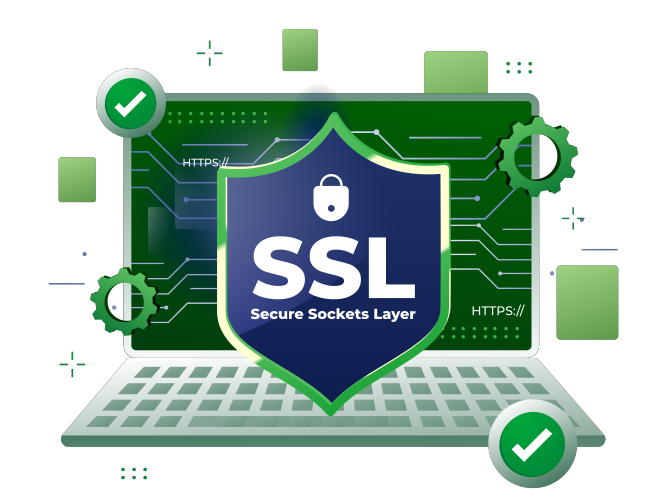Step by step SSL certificate validation process –
Certificate Authorities (CAs):
SSL certificates are issued by Certificate Authorities, reputable companies.
By confirming the legitimacy and ownership of the website, they build trust.
The integrity and security of the SSL certificate issuance process are ensured by CAs adhering to industry norms and recommendations.
Certificate Signing Process:
The CA checks the domain’s ownership and control when a website owner requests an SSL certificate.
A Certificate Signing Request (CSR), created by the owner of the website, includes the public key and other identifying data.
The CSR is delivered to the CA for approval and signature.
Certificate Issuance and Validation Methods:
a. Domain Validation (DV):
The CA checks the domain’s ownership and control when a website owner requests an SSL certificate.
A Certificate Signing Request (CSR), created by the owner of the website, includes the public key and other identifying data.
CSR are delivered to the CA for approval and signature.
Once the verification is complete, the CA issues the SSL certificate.
b. Organization Validation (OV):
Compared to DV, OV involves a higher degree of validation.
The CA confirms the organization’s identity, as well as its legitimacy and address.
There can be a need for further paperwork, including business licences or articles of incorporation.
The CA then issues the SSL certificate after the validation is Complete
c. Extended Validation (EV):
EV is the most rigorous validation method.
The CA performs an extensive verification process, including legal, physical, and operational checks of the organization.
The applicant must meet specific criteria outlined in the Extended Validation Guidelines (EVGs).
Once the validation is complete, the CA issues an EV SSL certificate, which activates the display of a prominent visual indicator (such as a green address bar) in the browser.
Certificate Revocation:
CAs have the power to revoke issued certificates in cases of security issues or certificate abuse.
The act of revoking a certificate ensures that it is no longer valid.
Individuals frequently use Certificate Revocation Lists (CRLs) and the Online Certificate Status Protocol (OCSP) to verify the revocation status of certificates.
The SSL certificate validation procedure makes sure that SSL-enabled websites are reliable and safe. In order to create a secure connection between the website and its users, it is necessary to confirm domain ownership, organisation information, and adherence to industry standards.
Common FAQ’s
Q1.What is SSL certificate validation?
Ans: SSL certificate validation is like the digital passport of a website. It’s the process where your browser checks if a website’s SSL certificate is genuine and still valid. Think of it as a safety measure to ensure your data is shielded from sneaky cyber eavesdroppers.
Q2.What are the different types of SSL certificate validation?
Ans: There are three flavors here:
- Domain Validation (DV): This is the basic check where the website owner just needs to prove they own the domain, like showing their ID.
- Organization Validation (OV): Here, it’s a bit more serious. The website’s owner has to provide extra info, like a business registration number.
- Extended Validation (EV): This is the VIP validation. It’s like a thorough background check by the Certificate Authority (CA) to ensure the website is the real deal.
Q3.How does the SSL certificate validation process work?
Ans: Imagine you’re knocking on a digital door:
- You reach a website.
- The website sends you its SSL certificate.
- You check if it’s signed by a trusted CA – like a website’s official stamp.
- You make sure it’s not expired – we don’t want an outdated passport.
- And finally, you ensure the certificate matches the website you’re visiting.
Q4.What are the benefits of SSL certificate validation?
Ans: Picture this: SSL certificates are like the guards of the internet castle. They protect your data from prying eyes and tampering. Plus, they make visitors trust your website more. It’s like having a shiny gold star on your digital report card.
Q5.How can I get an SSL certificate?
Ans: You can grab one from various Certificate Authorities. The cost depends on how thorough the validation is and how many domains the certificate covers. If you need help with SSL certificates, feel free to reach out to us, the experts in web security solutions.

